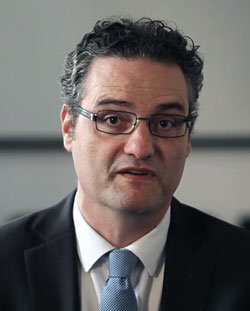About This Course
The word diaspora is nowadays the common word used in academia and in politics to describe that part of a people who have either migrated from their original homeland, or their descendants who have been born and raised in receiving countries, commonly known as host countries. It is no longer exclusively used as a Jewish (or Armenian) paradigm of forced exile. The term diaspora, though, is in flux and is changing as is global society and there is a great peril that, if the term comes to denote simply all who have left the original homeland, as well as all of their descendants, then it will most definitely be in danger of losing its discriminating power to describe a phenomena.
A diaspora or a diasporan is closely related to other terms such as migrants, ethnic groups, and expatriates but at the same time there are major differences in that diasporas have a constant and active orientation towards the homeland. A diaspora has certain parameters which define just what a community or its individual members need to think, feel and experience in order to be considered a segment of the transnational people that dwells outside the homeland. Diaspora groups have their own internal logic, and pragmatic homelands which have diasporas know how to establish mutually beneficial relationships.
This course will, besides looking at the theoretical side of diaspora in a globalised world, look at the Croatian diaspora and how it evolved in the second half of the twentieth century and what its perspectives are and what the future holds. Key words that are debated, defined and/or explained in the course include: diaspora, diasporans, ethnic groups, integration, assimilation, globalisation, transnationalism, transnational behaviour, hyphenated identities, homeland, hostland and homeland policies.
Course goal
To enable you to understand the meaning and importance of diasporas, both for the diasporans themselves and for the homeland as an important pool of human capital. The lives, experiences, traumas and tribulations of the Croatian diaspora are the integral part of the history and current evolving culture of Croatia, and better understanding can be mutually beneficial for all parties involved.
Course-level learning objectives
At the end of this class you will be able to:
- Understand what diasporas are;
- Describe the main debates and controversies surrounding the term diaspora;
- Understand the growing impact of diasporas on homelands and vice versa;
- Have an overview of the development of the Croatian diaspora;
- Gain insight into how second-generation (Croatian) diasporans see themselves and their identities;
- Synthesize knowledge of diasporas with your own experiences and contact with diasporas and diasporans;
- Evaluate the way in which a strategic approach towards diasporas by a homeland can have mutually beneficial rewards for all involved parties;
- Develop capacity to respond and reflect personally to a diasporan experience;
Assignment Overview
Here are some of the course assignments and activities
-
Video lectures: Most of the course content is delivered through video lectures. Each video runs approx. 20 minutes.
- Discussion forums: Multiple discussion forums are designed to develop out of the lectures. You will have the ability to articulate your own views on globalization as well as learn from your fellow students from around the world.
- Quizzes: Many video lectures have short quizzes embedded that allow you to check your grasp of basic knowledge as the course proceeds.
- Peer Assessment Assignments - There are peer assessment activities available for this course. By participating in these, and reading and responding to the work of others, you can also help improve your own learning and understanding.
Suggested Readings
- Tölölyan, Khachig (1996) Rethinking Diaspora(s): Stateless Power in the Transnational Movement. Diaspora 5 (2): 3-36
- Sheffer, Gabriel (2003): Diaspora Politics, At Home Abroad. New York: Cambridge University Press.




